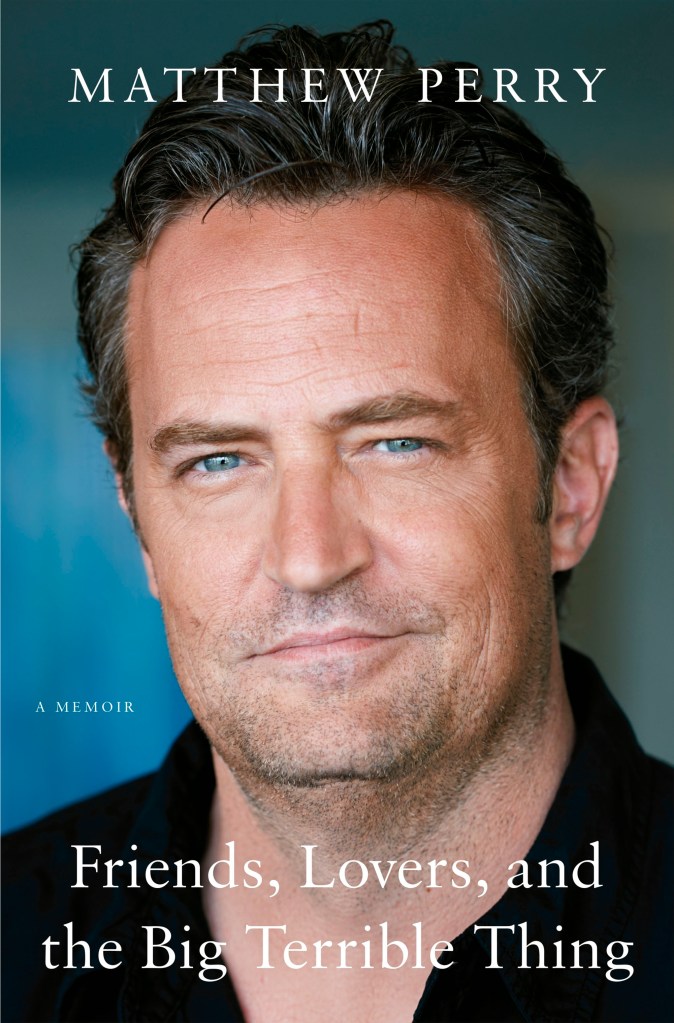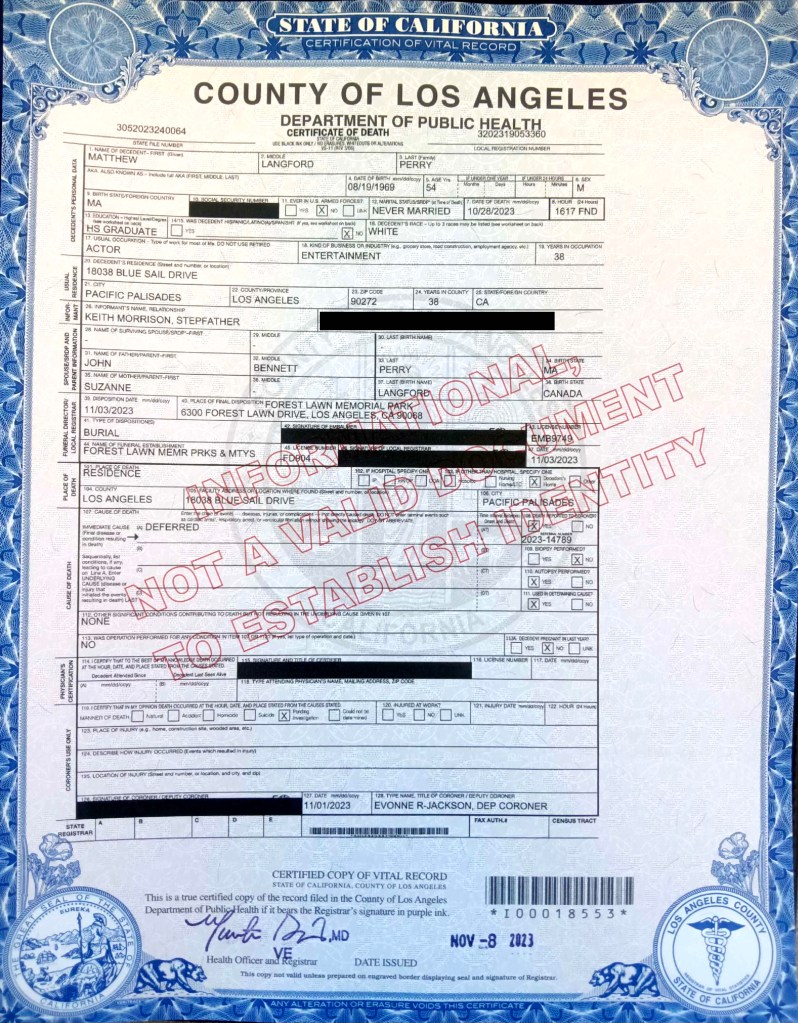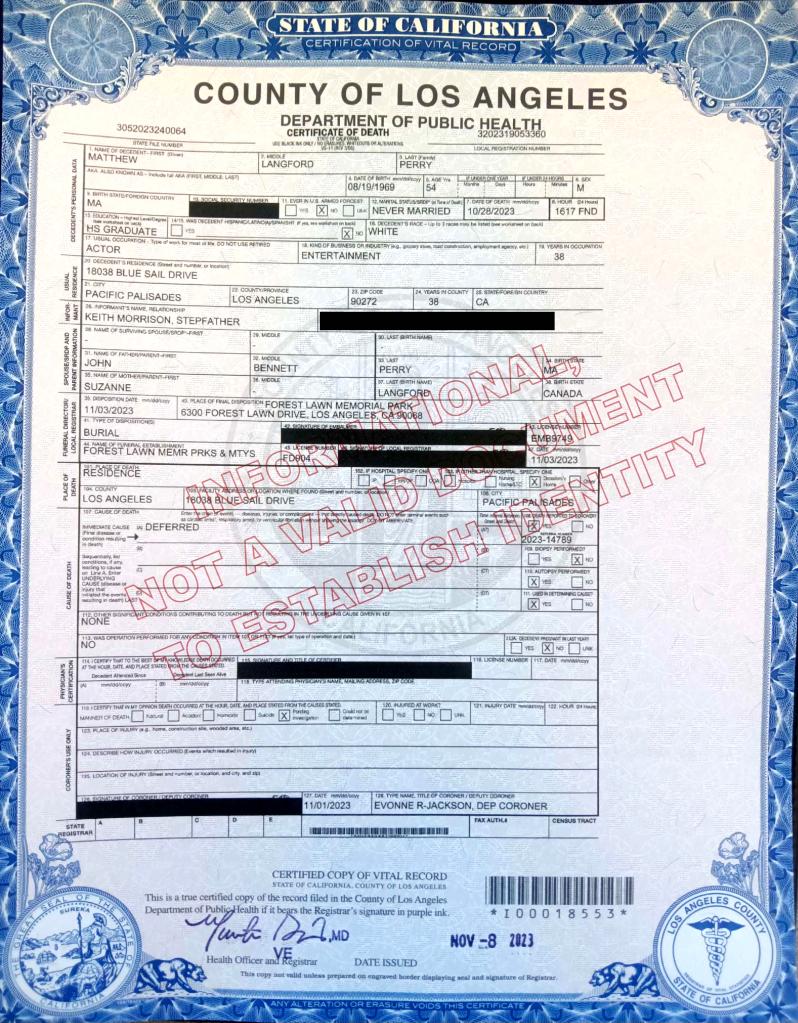‘Cruel’ and manipulative Matthew Perry lied about his sobriety before his death, pals say: report
Matthew Perry alleged he was clean and sober for 19 months leading up to his shocking death. However, a new report claims that wasn’t the case.
The “Friends” star, who shot to global fame after landing the role of sarcastic Chandler Bing on the hit sitcom, was found unresponsive in a hot tub in his Los Angeles home on Oct. 28. He was 54.
Pals who saw the actor near the end of his life insist that Perry, who spoke openly about his lifelong struggles with addiction, was sober and “in a good place” before his death — including former co-star Jennifer Aniston.
However, three sources tell Us Weekly that’s not true.
Perry’s talk about being sober while promoting his 2022 memoir “was a lie,” they said in a report published Wednesday.
“He wanted to sell books,” one source said. “Everything was crafted and manipulated; the truth wasn’t important.”
The source also told the outlet, “Apparently, he crashed his Aston Martin many times while high,” noting that the alleged accidents happened during a time that Perry claimed to be sober.
“He just damaged the car and no one was hurt, [but] he did not consider [that] he could have killed someone.”
The source alleged that Perry would use the celeb dating app Raya to meet young women who would bring him drugs.
“He would do the FaceTime thing and get to know them. Then it would be like, ‘Let’s hang out,’ and he would say [to come to his house],” the source said. “He wasn’t out in public anymore. That’s how he snuck things past people. Addicts are smart, and Matthew was brilliant.”
As previously reported, an autopsy determined that Perry died from “acute effects of ketamine,” with contributing factors listed as “drowning, coronary artery disease and buprenorphine effects.”
Perry was undergoing frequent ketamine infusions to treat depression and drug addiction. However, the medical examiner noted that the amount found in Perry’s system could not have been from his final infusion treatment a week and a half before his death.
Ketamine’s half-life is only three to four hours — and the amount found in Perry’s system was equivalent to the general anesthesia given to surgical patients, experts said.
In the wake of his death, Perry’s fans have spoken out about how his memoir helped them during their own sobriety battles.
Mom of two Michele Maize, 45, got sober almost three years ago after trying to quit drugs and alcohol on and off for 12 years — and Perry’s memoir “Friends, Lovers, and the Big Terrible Thing” saved her, she told The Post.
“I was living a double life. People didn’t think I ever had a problem. I was hiding it behind closed doors like [Perry] was,” Maize told The Post.
“I’d drink in secret. He was taking a massive amount of pills and doing those episodes of ‘Friends.’ He fell down so many times just like I did.”
Sources, however, alleged to Us Weekly that Perry was “verbally, emotionally and physically abusive.”
He “wasn’t a horrible human being. [But] he was so warped in his addiction that he wasn’t himself and the man he should be,” they claimed.
They described an incident in March 2022, in which Perry allegedly assaulted his longtime friend Morgan Moses (whom he dubbed “Erin” in his memoir) during a confrontation about his substance abuse.
“He threw [Moses] into a wall and threw something at her and shoved her onto a bed,” a source claimed, “and said, ‘If I wanted to hurt you, I would have.’”
Moses did not comment.
When Moses left after the alleged altercation, the source said, Perry was “mortified.”
“He was panicking because the person who was always by his side had left him. Morgan was his best friend, and he burned that to the ground. He pushed her to her absolute breaking point,” the source said, noting that that led to further isolation.
A source told the outlet that the actor showed similar behavior toward other people in his life, including one of his nurses.
“He was cruel,” the source said. “He had to pay for a lot of women to go to therapy. He left a lot of destruction.”
“Mr. Perry wasn’t able to deal with the tough love [that] is characteristic of my AA group,” Perry’s former rehab pal told The Post in December. “I feel for him, but in my 25 years’ experience, sometimes ‘helping’ someone is really enabling.”
“I think he had a lot of enablers who meant well. He was in a golden cage.”























